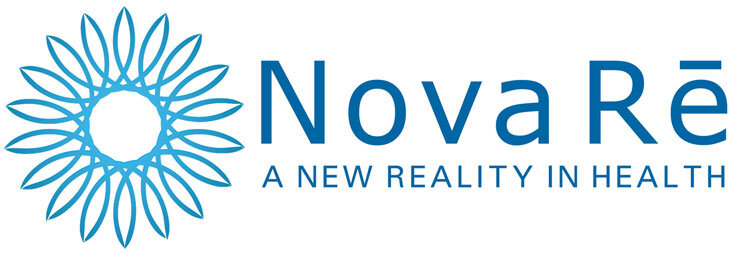Nutritional Deficiencies
Nutrition is vital to our health and well being. Research demonstrates poor nutritional health effects behavioral, emotional, cognitive and immune function. The research below demonstrates the science behind this knowledge.
Nutritional psychiatry: your brain on food. E Selhub https://www.health.harvard.edu/blog/nutritional-psychiatry-your-brain-on-food-201511168626
Diets high in refined sugars, for example, are harmful to the brain. In addition to worsening your body’s regulation of insulin, they also promote inflammation and oxidative stress. Multiple studieshave found a correlation between a diet high in refined sugars and impaired brain function — and even a worsening of symptoms of mood disorders, such as depression.
What’s interesting is that for many years, the medical field did not fully acknowledge the connection between mood and food.
(Good bacteria) protect the lining of your intestines and ensure they provide a strong barrier against toxins and “bad” bacteria; they limit inflammation; they improve how well you absorb nutrients from your food; and they activate neural pathways that travel directly between the gut and the brain.
Studies have shown that when people take probiotics (supplements containing the good bacteria), their anxiety levels, perception of stress, and mental outlook improve, compared with people who did not take probiotics.
Nutritional therapies for mental disorders. S. Lakhan https://nutritionj.biomedcentral.com/articles/10.1186/1475-2891-7-2#Sec6
Notably, essential vitamins, minerals, and omega-3 fatty acids are often deficient in the general population in America and other developed countries; and are exceptionally deficient in patients suffering from mental disorders. Studies have shown that daily supplements of vital nutrients often effectively reduce patients' symptoms.
Based on emerging scientific evidence, this form of nutritional supplement treatment may be appropriate for controlling major depression, bipolar disorder, schizophrenia and anxiety disorders, eating disorders, attention deficit disorder/attention deficit hyperactivity disorder (ADD/ADHD), addiction, and autism.
Understanding nutrition, depression and mental illnesses. Rao et al https://www.ncbi.nlm.nih.gov/pmc/articles/PMC2738337/
The dietary intake pattern of the general population in many Asian and American countries reflects that they are often deficient in many nutrients, especially essential vitamins, minerals, and omega-3 fatty acids.
A notable feature of the diets of patients suffering from mental disorders is the severity of deficiency in these nutrients
Studies have indicated that daily supplements of vital nutrients are often effective in reducing patients' symptoms.
Supplements containing amino acids have also been found to reduce symptoms, as they are converted to neurotransmitters which in turn alleviate depression and other mental health problems.
On the basis of accumulating scientific evidence, an effective therapeutic intervention is emerging, namely nutritional supplement/treatment. These may be appropriate for controlling and to some extent, preventing depression, bipolar disorder, schizophrenia, eating disorders and anxiety disorders, attention deficit disorder/attention deficit hyperactivity disorder (ADD/ADHD), autism, and addiction.
In addition to omega–3 fatty acids, vitamin B (e.g., folate) and magnesium deficiencies have been linked to depression.
the results of several case studies where patients were treated with 125-300 mg of magnesium (as glycinate or taurinate) with each meal and at bedtime led to rapid recovery from major depression in < 7 days for most of the patients.
Nutritional medicine as mainstream psychiatry. Sarris et al https://www.ncbi.nlm.nih.gov/m/pubmed/26359904/
Rapid urbanisation, and an overall transition from traditional lifestyles (concerning diet, physical activity, and social structures) have both been linked to increases in depression and other mental disorders.
Although caloric intake has increased, many individuals in affluent, developed nations do not meet the recommended intakes of several brain-essential nutrients, including B-group vitamins, zinc, and magnesium. (The brain) is reliant on amino acids, fats, vitamins, and minerals or trace elements.
A recent systematic review has now confirmed a relation between unhealthy dietary patterns and poorer mental health in children and adolescents.
Convincing data suggest that select nutrient-based supplements (in isolation, or in combination), might provide many neurochemical modulatory activities that are beneficial in the management of mental disorders. Examples of these nutrient-based supplements include omega-3 fatty acids, S-adenosylmethionine (SAMe), N-acetyl cysteine (NAC), zinc, B vitamins (including folic acid), and vitamin D. B vitamins are needed for proper neuronal function, and a deficiency of B9 (folate) has been reported in depressed populations, and in poor responders to anti-depressants.
Nutritional medicine should now be considered as a mainstream element of psychiatric practice, with research, education, policy, and health promotion supporting this new framework.
Nova Rē vitamin, mineral and trace elements are manufactured to be pure and bioavailable.
We will continue to add research so check back regularly.

